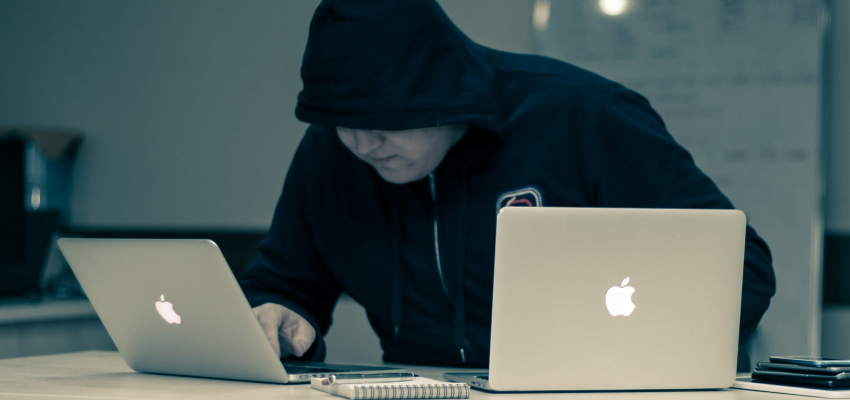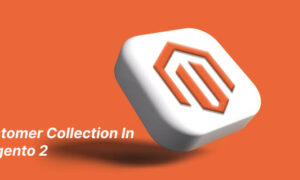How to Protect Your Online Privacy in an Age of Surveillance
The internet is an incredible resource, offering endless opportunities for learning, communication, and connection. However, it is important to remember that the internet can also be a risky place, particularly when it comes to protecting your personal information. In this post, we will delve into some of the most effective ways to safeguard your privacy online. Whether you’re using the internet for personal or professional purposes, it’s important to stay vigilant and take steps to protect yourself. So, Let’s start!
Use a VPN
If you want to keep your online activity private and secure, a VPN (Virtual Private Network) is an excellent tool for the job. With a VPN, you can encrypt all your traffic so that only the sender and recipient know what’s happening. This means that even if someone hacks into your computer or smartphone, they won’t be able to see what websites or apps are open in it—they’ll just see encrypted data instead of plain text.
A good VPN will also protect against malware and other threats by encrypting everything before sending it over the internet; this helps limit exposure so that hackers don’t have access to any sensitive information about who owns what device or where it lives physically.
Finally, there are some great reasons why using one might help protect against government surveillance: because most people aren’t aware of how much information governments collect through their normal activities (like email), not having access could make users vulnerable should anything happen down the line (like a place under house arrest).
Secure Your Operating System
- Use the latest version of your operating system.
- Install security updates.
- Use strong passwords that are unique and difficult to guess, such as a mix of upper- and lower-case letters, digits, and symbols (such as !?%#$). If you use an application that generates passwords for you (like LastPass), consider making them longer than 16 characters or using multiple words instead of one word per password so there’s less chance someone can guess them by looking at your history or other data they might have access to (iCloud is another good example).
- Set up a firewall and use it on all devices connected to the internet; it should also turn off so no one else can see what’s going through it!
Encrypt Your Hard Drive
Encrypting your hard drive is the first step to protecting your privacy. There are many different programs that can do this, but if you’re looking for a free option, we recommend VeraCrypt. It’s open source and works on Windows, macOS, and Linux computers.
Once you’ve installed VeraCrypt on your computer or device (we recommend using a USB stick), there are two ways to encrypt it: “Master Key Mode” or “Master Passphrase Mode.” In Master Key Mode:
- You choose an encryption key that applies only to this computer/device (this means no one else has access). The longer it takes for someone trying to access the data—or any other information stored in this encrypted container—the harder it gets for them! That’s because each time someone tries again with another password or PIN code combination after failing once already would require more time than just waiting until they have tried everything possible before moving on to something else when trying again later down the line so eventually, everyone will give up after a while because even though they may only get one shot at getting into those files wherever they might happen upon them over time since there aren’t many people who know exactly where all those things located yet but still not knowing where anything exists still makes me think twice before trusting anyone blindly without bothering myself first before asking questions later like why not?”
Password Protect Your Phone
Using a strong password is the single most important step you can take to protect your online privacy. Don’t use the same password for multiple accounts, and don’t share it with anyone else. Even if you think someone might want to hack into one of your accounts, don’t give them access to others by accident.
Finally, don’t use a fingerprint scanner on your phone as an alternative way of unlocking it—it’s an easy way for hackers or thieves who have physical access (like houseguests) to gain entry into sensitive data stored on devices like smartphones and laptops.
Use online Privacy-Minded Browsers and Search Engines
There are a number of privacy-minded browsers available. Firefox, for example, is the most popular browser in the world and has been around since 2004. It has a built-in ad blocker that blocks ads before they load on your computer, and it also blocks tracking cookies by default. If you want to use Firefox but still want to protect your privacy while browsing the web or using social media sites like Facebook (which tracks users’ movements around the site), DuckDuckGo is another great option because it doesn’t track users’ browsing habits at all—so even if someone were able to hijack their account somehow (a very unlikely occurrence), there would be no way for them to find out where exactly those pages were visited from or what websites were browsed through before being deleted from memory (or even worse: uploaded somewhere else).
Alternatively, if you’re more concerned about protecting yourself against surveillance than getting rid of unnecessary advertisements then ProtonMail might be able to help out as well; they offer encrypted email accounts that can be opened only with an encryption password generated by them themselves so unless someone hacks into their server they won’t know who sent/received any messages sent via this service either!
Use Two-Factor Authentication for Email and Social Networks
Two-factor authentication (often called two-step verification or 2FA) is a method of confirming your identity by providing additional information. This can be something you know (like a username and password), or something that is unique to you, like your fingerprint or face.
If you’re using Gmail, this means that when someone tries to send an email from their account, they will ask for both their username and password before being able to send messages. If the person doesn’t have access to either of these pieces of information—or if they’ve lost them—they can’t get into your inboxes!
Install HTTPS Everywhere
HTTPS Everywhere is a browser extension that automatically switches your connection to HTTPS whenever it’s available. It also blocks many of the most common forms of tracking and other privacy-invasive behavior.
To install it, go to https://www.eff.org/https-everywhere and click “Install Now” on the page that appears after clicking “Get Firefox HTTPS Everywhere.” You’ll ask if you’d like to install an update for Firefox and then prompt with a few checkboxes: one for whether or not you want this extension installed (it will be), one for which version(s) of Firefox should update (you can choose between stable or beta), and another one that asks if there are any existing versions of Firefox running on your computer right now (if so, don’t worry—this is safe). Finally, just hit “Install” when everything looks good!
Protect your online privacy by using a VPN, a secure operating system, encryption, and more
- Use a VPN: A Virtual Private Network (VPN) encrypts all of your data and protects it from prying eyes. A good VPN will also anonymize your internet traffic so that it’s harder for anyone to track you down via cookies or other methods. You should use one when accessing any website that has sensitive information—like banking sites or social media platforms—that could use against you if they hack into by someone else.
- Secure Operating System: If you’re not familiar with them yet (and we hope no one is), there are hundreds of different options for running an operating system in the privacy-minded community known as Tails. These operating systems run off USB drives so they can easily carry around without any trace left behind on your computer’s hard drive (in which many people still store passwords). They come preloaded with tools like Tor browser which routes all requests through multiple nodes before reaching their destination; however, if those nodes ever go down then everything stops working correctly until someone manually opens up another connection via SSH/TPs etcetera…
Conclusion of Online Privacy
When you think about it, there are a lot of ways to protect your online privacy. It’s not just about using a VPN or encryption software; it’s also about changing how you use the internet. If you’re concerned about surveillance and want to know what else you can do, we recommend checking out our other articles on how to protect yourself against data collection by companies like Google or Facebook.


